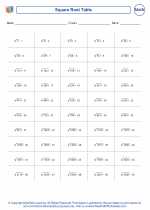Operators in Mathematics
Operators in mathematics are symbols or functions that are used to perform specific operations on one or more values or variables. There are several types of operators in mathematics, including arithmetic, comparison, and logical operators.
Arithmetic Operators
Arithmetic operators are used to perform basic mathematical operations such as addition, subtraction, multiplication, and division.
- Addition (+): Adds two numbers together.
- Subtraction (-): Subtracts one number from another.
- Multiplication (*): Multiplies two numbers together.
- Division (/): Divides one number by another.
- Modulus (%): Returns the remainder of a division operation.
Comparison Operators
Comparison operators are used to compare two values or variables and determine their relationship with each other.
- Equal to (==): Checks if two values are equal.
- Not equal to (!=): Checks if two values are not equal.
- Greater than (>): Checks if one value is greater than another.
- Less than (<): Checks if one value is less than another.
- Greater than or equal to (>=): Checks if one value is greater than or equal to another.
- Less than or equal to (<=): Checks if one value is less than or equal to another.
Logical Operators
Logical operators are used to combine multiple conditions and determine the overall truth value of the combined conditions.
- AND (&&): Returns true if both conditions are true.
- OR (||): Returns true if at least one condition is true.
- NOT (!): Returns the opposite of the condition's truth value.
Study Guide
When studying operators in mathematics, it's important to understand the purpose and usage of each type of operator. Practice using arithmetic operators to perform calculations, comparison operators to compare values, and logical operators to combine conditions.
Additionally, familiarize yourself with the order of operations (PEMDAS) and understand how different operators interact with each other in mathematical expressions.
Finally, practice solving problems and writing code that involves the use of operators to reinforce your understanding of their application in mathematical and computational contexts.
Remember to keep practicing and seeking help if you encounter any difficulties with understanding or applying operators in mathematics.
.◂Math Worksheets and Study Guides Sixth Grade. Exponents to Repeated Multiplication
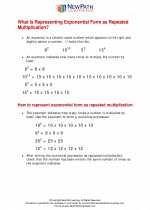
 Worksheet/Answer key
Worksheet/Answer key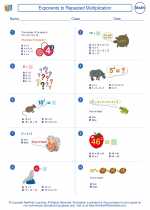
 Worksheet/Answer key
Worksheet/Answer key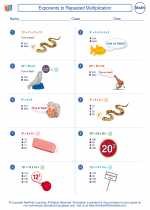
 Worksheet/Answer key
Worksheet/Answer key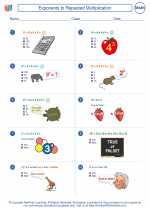
 Worksheet/Answer key
Worksheet/Answer key